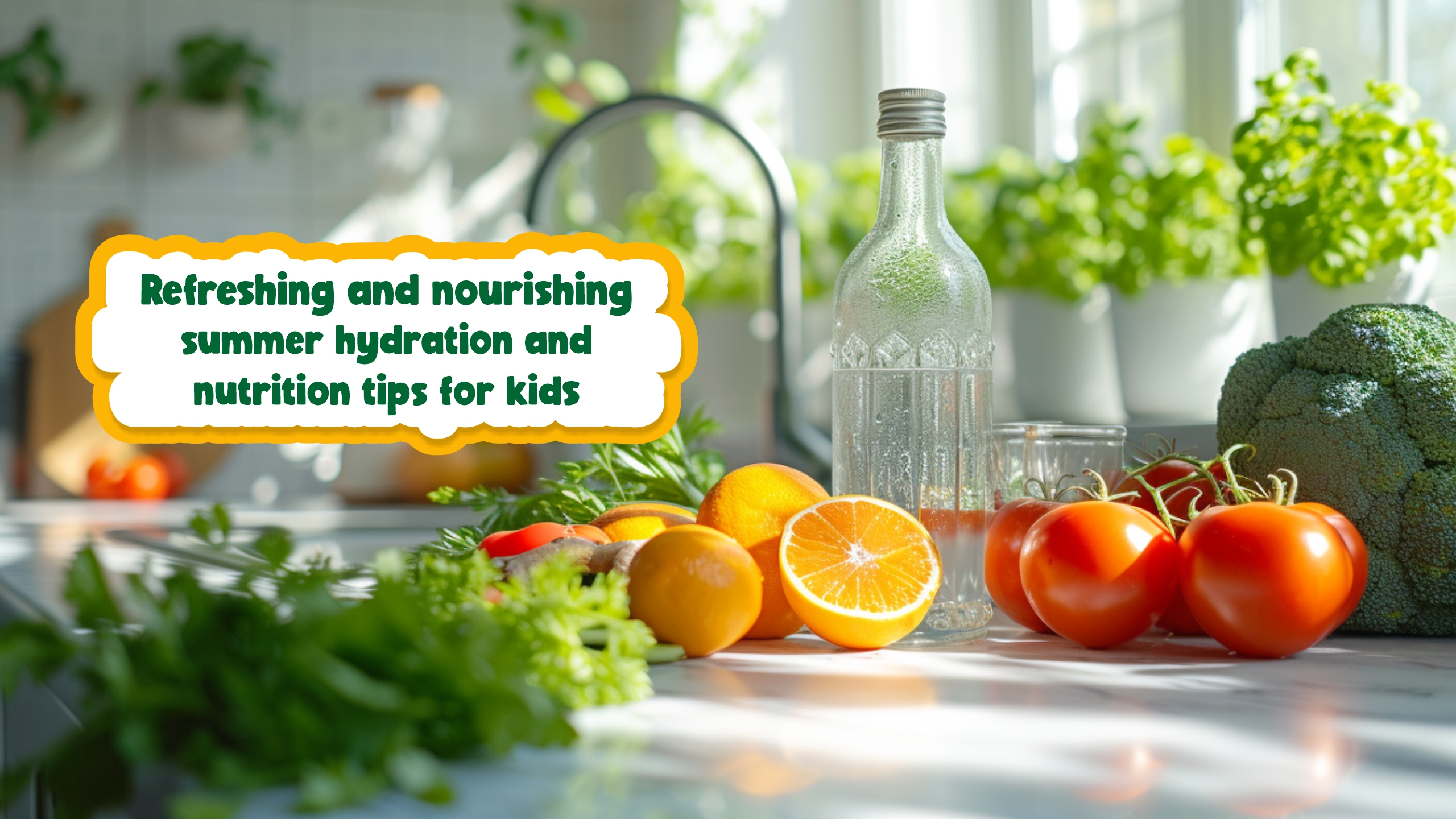As the Indian summer approaches, ensuring children’s optimal hydration and nutrition becomes paramount. The soaring temperatures not only lead to increased perspiration but also elevate the risk of dehydration in children and nutritional imbalances. Implementing effective strategies can help maintain children’s health, energy levels and overall well-being during these challenging months.
Understanding the Importance of Hydration
Children are particularly susceptible to summer dehydration due to their higher body water content and metabolic rates compared to adults. The higher body water content in infants and young children is because during early development, children have a lower proportion of fat and a higher proportion of lean, rapidly growing tissue, which requires a greater amount of water to support cell division, nutrient transport, and essential chemical reactions. Dehydration can manifest through symptoms such as fatigue, dizziness, and reduced cognitive function. A study published in StatPearls highlights that globally, dehydration is a leading cause of paediatric morbidity and mortality, underscoring the critical need for adequate fluid intake.
Practical Hydration Strategies
- Regular Water Intake: Encouraging children to drink water consistently throughout the day is essential. Setting reminders or incorporating fun elements like colourful water bottles with cartoon characters or reward-based drinking charts can make this habit more appealing. This is key to keeping kids hydrated in summer.
- Incorporate Hydrating Foods: Adding water-rich fruits for kids such as watermelon, oranges, muskmelons and strawberries can significantly contribute to their hydration. For instance, a fruit salad with these seasonal favourites makes an excellent midday snack. These fruits are also rich in vitamins A and C, which support immune function and skin health, vital during sun exposure.
- Limit Sugary Beverages: While juices and fizzy soft drinks might be tempting, they often contain high sugar levels that can lead to increased fluid loss as the body requires more water to process and eliminate the excess sugar through the kidneys. Opting for natural summer drinks like coconut water, lemon shikanji or buttermilk offers hydration along with essential electrolytes, without added sugars. These are ideal healthy summer drinks for children.
Nutritional Considerations for the Summer
The heat can influence children’s appetites and nutritional needs. Ensuring a balanced summer diet for kids that aligns with the season is crucial for maintaining energy and health.
- Emphasise Seasonal Fruits and Vegetables: A plate of fresh cucumbers, tomatoes and leafy greens during lunch can provide cooling benefits and aid digestion. These foods are light summer meals for children, helping them stay full without feeling sluggish.
- Include Dairy Products: Items like curd and buttermilk are rich in calcium and probiotics. A glass of chaas or a bowl of fruit raita not only cools the body but also supports digestive health in children.
- Opt for Light, Frequent Meals: Instead of three heavy meals, offering four to five smaller portions like idlis, boiled corn, or poha ensures sustained energy. This practice supports a healthy children’s summer diet plan and prevents overeating.
Foods and Practices to Avoid
Certain dietary choices can worsen heat-related issues and should be moderated.
- Reduce Salty and Processed Foods: Excess salt from packaged chips or noodles can heighten thirst and risk of dehydration. Choosing homemade snacks like roasted makhana or vegetable sandwiches offers healthier alternatives.
Avoid Spicy and Fried Foods: Dishes like spicy samosas or deep-fried pakoras can raise internal body heat and lead to digestive distress. Steamed dhokla or grilled paneer skewers are smarter substitutes.
Limit Caffeinated Beverages: Caffeine, found in iced tea or cold coffee, can increase urine output, causing fluid loss. Instead, children can be offered natural and hydrating alternatives like herbal drinks made from tulsi, chamomile, fennel or mint. Traditional cooling beverages such as rose sharbat, badam milk or sabja (basil seed) drinks are also suitable for children in moderation, as they help maintain hydration while providing essential nutrients.
Engaging Children in Healthy Habits
1. Interactive Meal Preparation: Making a mango smoothie together or letting children assemble a rainbow vegetable wrap creates excitement around nutritious food.
2. Educational Activities: Storybooks or animated videos about healthy eating habits in summer can teach the value of each food group in a fun way.
3. Lead by Example: When parents adopt healthy summer eating habits, children are more likely to follow. A family fruit-break time each evening, for instance, promotes togetherness and wellness.
By prioritising proper summer hydration and nutrition for kids, families can ensure that children remain active, happy and healthy throughout the season. These practices not only support immediate well-being but also lay the foundation for lifelong healthy choices.

It’s so important to keep track of hydration during these hot months, especially for kids who have higher water needs. I really like how this post explains the science behind why kids are more vulnerable to dehydration!
Superb guidance….Indeed simple to follow as well